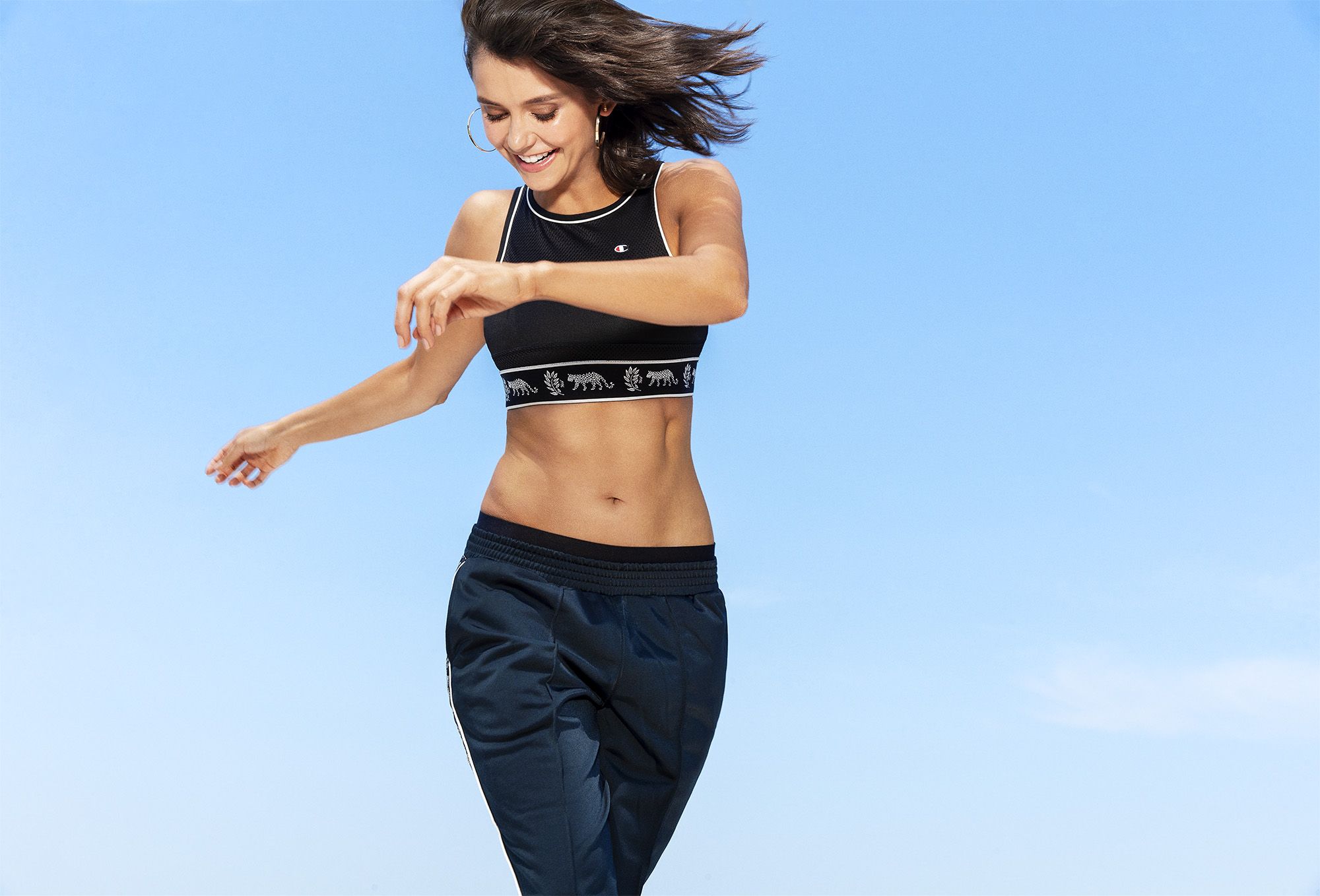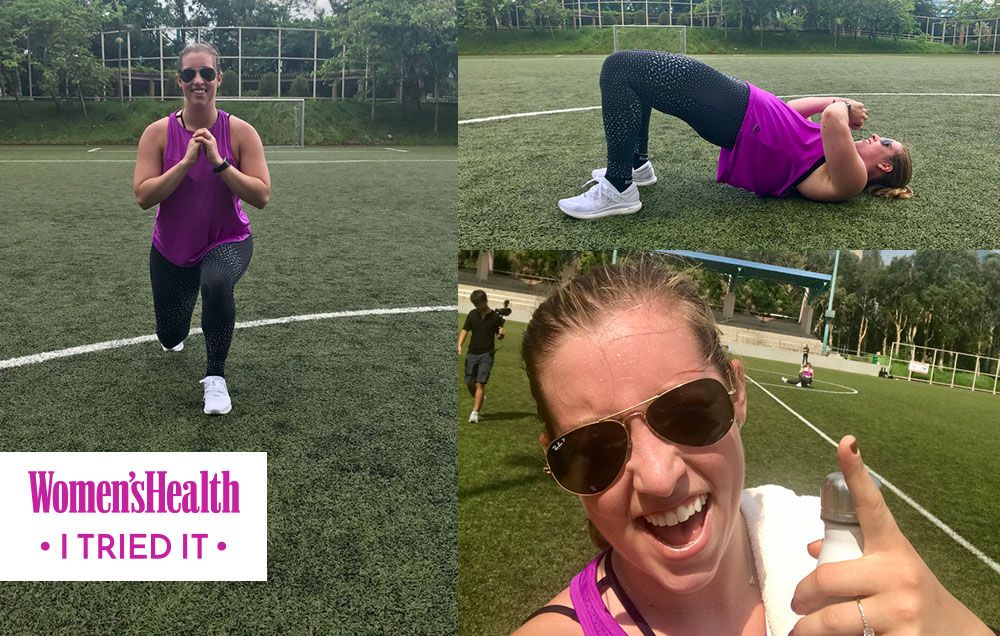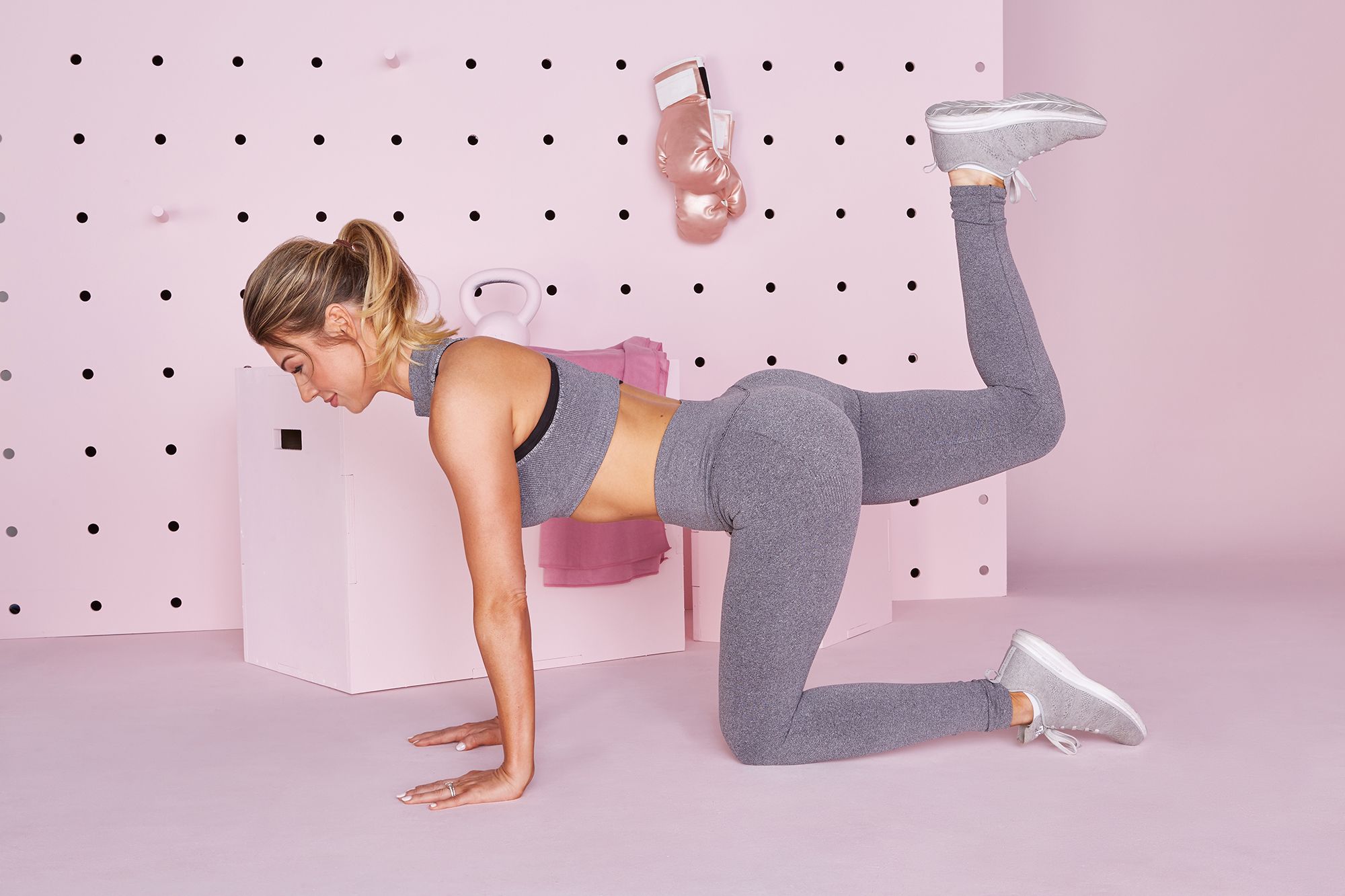Picture fit celebs like Ariana Grande, Nina Dobrev, and Behati Prinsloo—would you ever suspect that they sculpted their butts without doing a single squat? Well, believe it, because their trainer Harley Pasternak is adamantly opposed to the lower-body move.
“There’s a million glute exercises out there, but that doesn’t mean there’s a million good glute exercises,” Pasternak (who’s also previously worked with Lady Gaga, Hilary Duff, Rihanna, and countless other celebs) told Women’s Health. His opinion: “Squats aren’t a great glute exercise at all, so I don’t do squats with my clients.”
https://www.instagram.com/p/ByVkhrzgdqS/
Be careful saying “take me back” when @nikkiwhatnikkiwho is in earshot. She’ll do it….🌞
A post shared byNina Dobrev (@nina) on
Why, exactly? While they’re a time-honored move, Pasternak notes that for squats to be effective, you need to add a lot of weight onto your back using a barbell. “Loading your spine with all that weight, putting your shoulder girdle back to hold the bar, that’s all really tough on your body,” he says.
Additionally, most people (read: probably you) are stronger on one side of the body than the other. “Whether it’s that toe you stubbed as a kid, that ankle you rolled playing sports, that knee that bugs you—there’s something that’s going to cause you to compensate.”



And when you’re doing an exercise like a squat, which involves two legs at once, it’s really hard to tell what percentage of effort your left side is exerting versus your right. “The stronger side will continue to get stronger, the weaker side will continue to get neglected,” says Pasternak, “and your glutes aren’t getting what they need.”
Instead, Pasternak recommends opting for isolateral exercises (a.k.a. single-sided moves). His favorite: Lunges! That includes forward lunges, reverse lunges, side lunges, skater lunges, the list goes on. “Since these are isolateral, your dominant side doesn’t have a chance to take over,” he says. “And you’re getting a deeper range of motion than you would with a squat, so your glute has to work harder.” Isolateral exercises like lunges also create an unbalanced environment for your body, “so your core really has to compensate to keep your body upright.”
Learn how to do a lunge
How to: Stand up tall, then take a large step forward. From here, bend your knees and lower your body until your legs form 90-degree angles. Hold for 30 to 60 seconds, then repeat on the other side.
Pasternak also prefers lunges since they mimic every day life. “We tend to do more things on one foot,” he says. “When you walk, you never have two feet on the ground at once. We walk on the stairs one leg at a time.”
Want a full butt workout? Try this routine:
Now, Pasternak does admit that sometimes he’ll throw a plyometric jump squat in at the end of his workouts, for a fun change of pace. But he ensures clients do this move on a soft surface, with a resistance band wrapped around their thighs for additional-activation, and with nothing but bodyweight.
Other than that tiny exception, this celebrity trainer gives you full permission to nix squats from your routine—for good.
Source: Read Full Article
